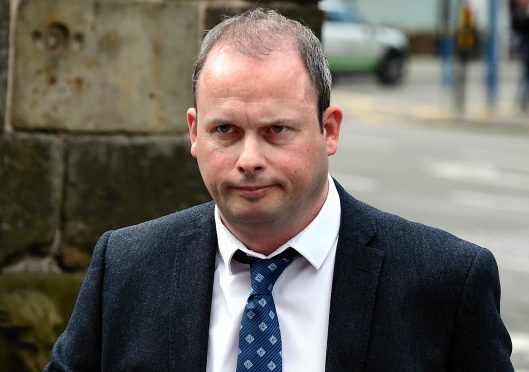Analysts searching computer equipment, seized from a photographer accused of indecent images charges, found child pornography websites had been accessed, a court heard yesterday.
The comments were made during the trial of Kevin Emslie, 46, who is facing two charges relating to downloading and possessing the images at Aberdeen Sheriff Court.
The court also heard searches of the internet browsing history for a user account with his name on it revealed search terms for young girls, as well as one for a boy, consistent with child pornography.
Emslie is alleged to have taken or made the pictures between October 31, 2004, and October 11, 2015.
He is further accused of possessing the images between December 28, 2008, and November 10, 2015 at two addresses in Aberdeen.
Both offences are said to have taken place at his mother’s house on Beaconhill Road, Milltimber, and his current address on Newburgh Crescent, Aberdeen.
Emslie, a Press and Journal photographer, denies the charges against him.
Giving evidence for the second day was Jalees Ahmed, from Police Scotland’s cyber crime unit.
Pc Ahmed said logs for a user account with the name Kevin on it revealed a number of search terms.
Fiscal Depute Alan Townsend asked him: “Are you familiar with the phrases?”
Pc Ahmed said: “We have a huge list of websites and search terms which obviously we look for.”
He went on to describe the terms as being “associated to child pornography”.
He told the court some of the searches were carried out between August 16, 2014 and September 9, 2015.
Pc Ahmed also spoke of finding three websites linked to indecent images that had been accessed.
Mr Townsend asked him: “Are these websites that have child pornography?”
Pc Ahmed said: “That’s right, very common ones – preteens.”
Pc Ahmed said that 128 were category C – the least severe group, with 19 in category B and 9 in the most serious category, A.
Defence advocate for Emslie, David Moggach, asked Pc Ahmed: “The main user means he is not the exclusive user of the internet?”
Pc Ahmed agreed.
He went on to ask if it could be the case that a user could be oblivious to images or information on a website they were looking at.
Pc Ahmed said: “Could be.”
The trial continues.
